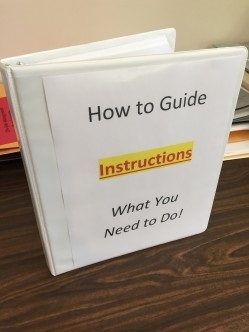My son, Michael, came home from college last night for the Thanksgiving weekend. He is finishing up his first semester next week. Although it has been an exciting few months for him, it has also been a busy and trying time for him. Adjusting to a new environment with new expectations and new people is not always easy. I know he has been challenged at times. I’m sure it has not been a perfect semester for him. Although his performance has been great, that’s not really my focus. I am proud of him no matter what and excited to spend time with him. I simply cannot say enough good things about him. He is my son, and I love him.
Judging ourselves by our circumstances or behavior is like riding a roller coaster.
Over the past decade, my life has changed significantly. I have gone from being an agoraphobic basket case, to quitting my accounting job, to going back to school, to youth ministry, to being a full-time counselor, to burnout, to where I am now: counseling, writing, and working full-time in accounting again. Throughout these past ten years, there have been moments in which I struggled and times in which I was not proud of my actions. There have been other moments in which I was content with my circumstances and where my decisions led me. When I judged myself by my actions and circumstances along the way, my feelings about myself were like a roller coaster…up and down, up and down, intensely sharp curve!, up and down.
God does not ride the roller coaster.
What our Father says about us remains the same. It is perfectly consistent. His feelings about us are the same after a poor decision as they are when we make great decisions. He is not easily angered and unpredictable in His feelings towards us.
So, how does God REALLY feel about us?
Like the love I have for my son right now, our Father’s love never waivers towards us. It is intensely strong all the time. He focuses on knowing us for who we really are as His beloved children…not our behaviors. He lavishes His love on us (1 John 3:1). He is proud of us, His children. Although it’s tempting to believe we are messed up sometimes, He did not make mistakes when He knitted us together in the womb. Can He be surprised by our bad choices? No, there is nothing He does not foresee. And despite knowing everything we have done and will do, He still chooses to love us regardless.
Embracing God’s love makes a much bigger impact than we might think.
There’s many amazing things that occur when unconditional love from our Father is truly embraced. Being loved produces courage and confidence. It heals our emotional wounds. Bondage to fears is broken. It melts away bitterness and grudges, and our relationships flourish. Sometimes it is hard to accept this love when so many things in our lives screams it cannot be true, but it’s worth a fight to do so. It deeply matters what we believe about God’s feelings towards us. Trusting Him when He says He loves us changes everything.
Thank you for reading my blog today! If you would like to receive email notifications about new blog posts and other announcements, please subscribe below:











